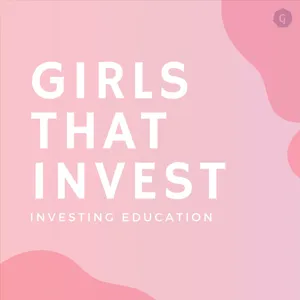Podcast Summary
Impact of shopping small on wallets and small business owners: Considering shopping small for a week can make a difference in personal finances and the economy, impacting both consumers and small business owners
Shopping small can have a significant impact on both consumers' wallets and the wallets of small business owners. According to Katie Yatty Tassan's discussion on The Money with Katie show, there are approximately 33 million small businesses in the US, which is a large portion of the population. Shopping small can mean supporting local businesses and making a difference in someone's life, but it may also come with the sacrifice of convenience and potentially higher prices. To gain a better understanding of this, Katie suggested conducting an experiment where only shopping small for a week and observing the effects on one's budget and lifestyle, as well as the businesses interacted with. Overall, the discussion highlights the importance of considering the impact of consumer choices on both personal finances and the economy.
Small businesses contribute significantly to economic growth and job creation: For every $100 spent at a small business, $48 stays in the local community, compared to only $14 for a big box store
Small businesses are a significant contributor to economic growth and job creation in the US, with nearly two-thirds of new jobs coming from them between 1995 and 2021. Despite this, there has been a decline in small businesses since the 1970s and 80s, with many being self-owned or having just a few employees. The average salary of a small business owner is only 3% above the annual mean wage in the US, which can be shocking for those who believe entrepreneurship is the only way to make significant money. However, it's important to note that large corporations also employ many people and can offer good wages and benefits. The community impact of spending money at a small business is significant, with $48 staying in the local community for every $100 spent compared to only $14 for a big box store. This is because local businesses tend to support other local businesses and hire locally, making the community economy more interconnected.
Impact of supporting small businesses vs corporations: Supporting small businesses can feel more equitable due to closer community connection, but it's important to recognize the limitations and consider larger systemic issues.
While large corporations like Amazon may provide good wages and benefits for some employees, the impact of supporting small businesses can feel more tangible and equitable due to the closer community connection. However, it's important to recognize that not everyone can afford to shop only at small businesses, and corporate regulation is lacking. Ultimately, it's a nuanced issue, and while consumer choices can make a difference, it's also essential to consider the larger systemic issues at play. The conversation highlights the importance of being honest with oneself about the potential impact of one's consumer decisions and the need for ongoing dialogue and reflection on these complex issues.
Considering consumer choices is important, but corporations and legislation have a bigger role in ensuring fair labor practices.: Consumers can make a difference, but corporations and legislation should prioritize worker rights and ethical business practices. Consider the impact of convenience and urgency in shopping to reduce carbon footprints.
Individuals can make a difference by considering the impact of their consumer choices, but the responsibility for fair labor practices and reducing exploitative loopholes should not solely rest on consumers. Instead, corporations and legislation should prioritize worker rights and ethical business practices. Additionally, reevaluating the concept of urgency and convenience in shopping can lead to reduced reliance on fast shipping and lower carbon footprints. Ultimately, a more holistic approach to shopping and production can lead to positive change.
Balancing convenience and ethics: Some individuals prioritize ethics and sustainability over convenience and affordability, but the challenge lies in the pervasive nature of convenience and the ease of access to mass-produced goods.
The convenience and affordability of mass-produced goods can be compelling for consumers, even if it comes at the cost of sustainability and ethical labor practices. However, some individuals prioritize these values and are willing to pay more for locally sourced or ethically produced items. The challenge lies in the pervasive nature of convenience and the ease with which consumers can access it, often through online marketplaces. The balance lies in trying to shop locally as much as possible, while also recognizing the necessity of certain conveniences or hard-to-find items. The individual's experience of prioritizing ethics over convenience, despite financial constraints, serves as a reminder of the power of personal values and the impact of individual choices on communities.
Large corporations vs. local businesses: Supporting local businesses can have a positive impact on the local economy, but large corporations can also provide benefits and support fair trade. The debate about where to draw the line for supporting expanding small businesses is complex.
The size of a business does not necessarily determine its labor or supply chain practices. The speaker shared her experience of working for a large corporation like Starbucks, which provided various benefits and supported fair trade, compared to local coffee shops that paid less and required longer hours with fewer benefits. However, the speaker also acknowledged the challenges small businesses face in providing benefits due to economies of scale and the current healthcare system. Ultimately, the most compelling argument for supporting local businesses is the potential positive impact on the local economy. The debate about where to draw the line for supporting expanding small businesses remains complex, as every business starts small and grows over time. The goal should be to encourage entrepreneurship and support local businesses when feasible, without overwhelming consumers with the responsibility of extensive research on each business's practices.
Balancing Consumer Choices: Small vs. Large Businesses: Consumers face a complex decision when choosing between supporting small or large businesses. While it's important to consider the impact, size doesn't always equate to harm, and personal values and priorities play a role.
While it's important to consider the impact of larger businesses on smaller ones, it's not always a clear-cut decision for consumers. Size doesn't necessarily equate to harm, and there's room for nuance. The consumer's role in supporting small businesses versus larger ones is a complex issue. It's not always the most convenient or affordable option, but for some, it's a priority. The speaker assumes good intent for companies trying to grow but draws the line when their values conflict with their own. It's a personal decision, and not every consumer has the time, money, or resources to make these choices consistently. The speaker acknowledges that this perspective may not apply to everyone and that finding a balance is crucial. Ultimately, it's up to each individual to decide where they draw the line and how they prioritize their consumer choices.
Businesses prioritizing ethical practices face challenges in a cost-effective business environment: Consumer demand for ethical business practices could incentivize more companies to prioritize ethics, despite slim profit margins in a cost-effective business environment.
The current business environment in the US is often driven by tax loopholes and cost effectiveness, making it challenging for businesses to prioritize ethical practices due to slim profit margins. However, there is a significant market of businesses striving to make a positive impact, and consumer demand for ethical business practices could incentivize more companies to compete in this area. The speaker also acknowledged the complexities of a global economy and the ethical implications of supporting large businesses. Ultimately, the conversation revolves around the question of whether businesses can operate on a large scale while maintaining ethical practices, and whether it is ethical to support such businesses. While the speaker acknowledges that this is a complex issue, they believe that consumer demand for ethical practices could shift the business landscape.
Making ethical choices in global business: Support small businesses and locally produced items, consider entire supply chain, challenge biases, and make informed decisions for ethical labor practices.
Consumers face a challenge in ensuring ethical labor practices when purchasing goods from global businesses, particularly those in the fashion industry. While it may be difficult to legislate a standard across countries, individuals can make conscious choices by supporting small businesses and locally produced items. However, it's essential to recognize that exploitation is not always visible or limited to specific types of businesses or industries. The responsibility to minimize exploitation lies with consumers, who can consider the entire supply chain and make informed decisions based on transparency and accountability. It's also important to challenge our preconceived notions and biases about who and where exploitation occurs. Ultimately, while it may be unavoidable in some ways, individuals can make a difference by being informed and intentional in their purchasing decisions.
Embrace the power of individual action: Each person has the ability to make a difference by intentionally supporting small businesses and minimizing participation in harmful systems.
We each have the power to make a difference in the systems we engage with, even if it seems small. Instead of being complacent consumers, we can intentionally support small businesses and minimize our participation in harmful systems. This optimistic approach can lead to positive change, as every individual can be a "tiny spark." It's important to remember that starting a business or supporting one is an accessible option in today's digital age. While it's natural to have conflicting perspectives, it's essential to engage in thoughtful discussions and learn from one another. Ultimately, we can hold each other accountable for our actions and work together to create a more intentional and sustainable world.





